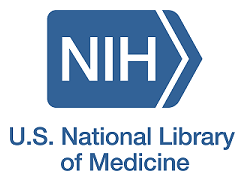

To Your Health: NLM update Transcript
Cancer risk warnings questioned: 09/12/2016

Image: Courtesy of the Centers for Disease Control
Greetings from the National Library of Medicine and MedlinePlus.gov
Regards to all our listeners!
I'm Rob Logan, Ph.D., senior staff, U.S. National Library of Medicine (NLM).
Here is what's new this week in To Your Health - a consumer health oriented podcast from NLM - that helps you use MedlinePlus to follow up on weekly topics.
The value of some consumer suggestions about a range of cancer risks from the International Agency for Research on Cancer have become increasingly questioned by scientific experts, suggests an interesting news article recently published in Science.
Science notes the International Agency for Research on Cancer (IARC), which is a branch of the World Health Organization, recently provided public advisories about the cancer risks in diverse areas such as: outdoor air pollution; processed meat; coffee; and very hot beverages. Science notes the IARC has issued about 1,000 verdicts about human carcinogen risks since the organization was founded in 1971.
However, Science reports the wisdom of the judgments about some of the IARC's recent warnings about consumer cancer risks often have been questioned by scientific experts in the U.S. and other nations. For example, Science reports in October 2015, the IARC found processed meats (such as corned beef or smoked ham) to be a cancer risk for consumers around the world.
Science reports the IARC classified processed meats (and we quote): 'alongside plutonium and smoking in its classification scheme' (end of quote).
Science reports (and we quote): 'Scientists and risk communication experts, however, were quick to point out that the (health) risk (from eating processed meats) was very low' (end of quote).
Science suggests the IARC seems to have a recent track record of heightened warnings that seem to inappropriately classify a potential health hazard as a highly dangerous health risk to the public.
Science adds the IARC sometimes does not carefully distinguish between cancer hazards and the health risks presented to consumers. Interestingly, Science distinguishes the differences between a hazard and a risk as (and we quote): 'an exposure is a cancer hazard if it can cause the disease under some circumstances; the risk is how likely one is to get cancer if exposed' (end of quote).
Overall, Science describes the IARC's track record of providing cancer risks information to consumers as confusing because it tries to communicate often equivocal risks to the public in unequivocal black or white terms.
A prominent U.S. cancer epidemiologist told Science (and we quote): 'What's the public supposed to do with these judgments. No matter how much I observe (the IARC), I find it baffling' (end of quote).
To help you better understand health risks, some helpful information from the National Institutes of Health is available within the 'start here' section of MedlinePlus.gov's understanding medical research health topic page. The website explains issues that underlie health warnings, such as understanding how risk information sometimes gets confused as it is interpreted by public information officers, journalists, and even experts.
The Nemours Foundation also provides a primer about understanding health news coverage within the 'teenagers' section of MedlinePlus.gov's understanding medical research health topic page.
Remember, you can sign up to receive updates about understanding medical research as they become available on MedlinePlus.gov.
To find MedlinePlus.gov's understanding medical research health topic page, please type 'understanding medical research' in the search box on MedlinePlus.gov's home page, then, click on 'understanding medical research (National Library of Medicine).' MedlinePlus.gov also has a health topic page devoted to evaluating health information.
Before I go, this reminder... MedlinePlus.gov is authoritative. It's free. We do not accept advertising .... and it is written to help you.
To find MedlinePlus.gov, just type 'MedlinePlus.gov' in any web browser, such as Firefox, Safari, Chrome, or Explorer, on any platform.
We encourage you to use MedlinePlus and please recommend it to your friends. MedlinePlus is available in English and Spanish. Some medical information is available in 48 other languages.
Your comments about this or any of our podcasts are always welcome.
Please email the podcast staff anytime at: NLMDirector@nlm.nih.gov
A written transcript of recent podcasts is available by typing 'To your health' in the search box on MedlinePlus.gov's home page.
The National Library of Medicine is one of 27 institutes and centers within the National Institutes of Health. The National Institutes of Health is part of the U.S. Department of Health and Human Services.
A disclaimer — the information presented in this program should not replace the medical advice of your physician. You should not use this information to diagnose or treat any disease without first consulting with your physician or other health care provider.
It was nice to be with you. Please join us here next week and here's to your health!





















.png)












No hay comentarios:
Publicar un comentario